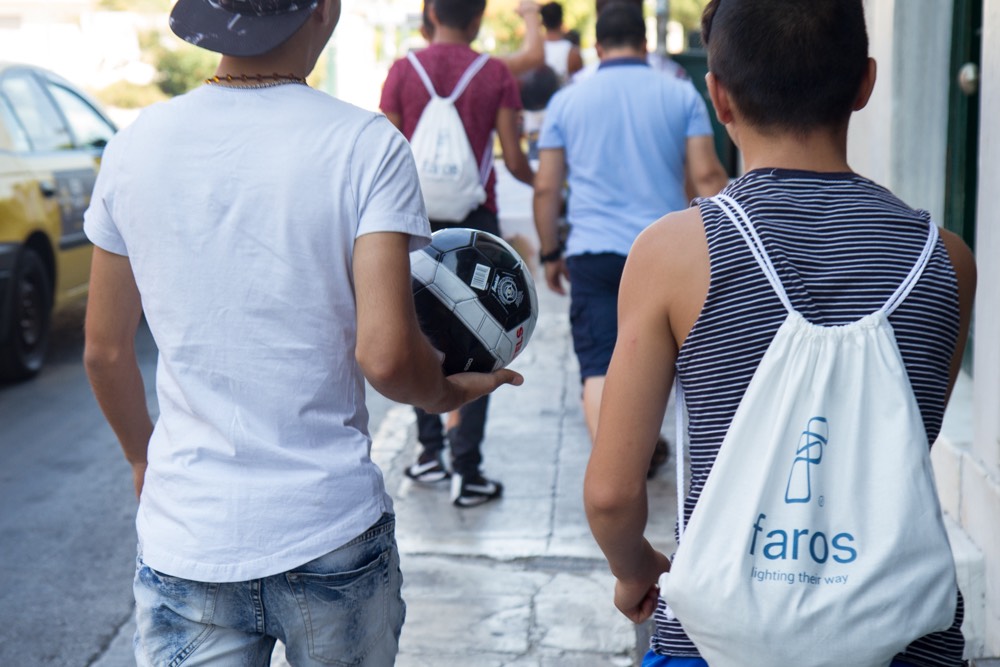Here is what we do at Victoria Square
Two words. Victoria Square.
That’s the name of a small square two blocks away from Faros’ shelter at the center of Athens. Hundreds of teenage asylum seekers – who arrive in Greece’s capital every month – have memorized it on their way here.
That’s because Victoria Square is the main meeting point for refugees who arrive in the city.
The area around the square has lost the charm of Athens’ bourgeoisie. It is now a disheveled neighborhood of wretched grey buildings and flaking walls covered in graffiti.
For teenage and young refugees, Victoria Square is a false lifeline. On the one hand, it’s the place where aid workers will hand them their first hot meal in Athens. It’s where they will meet friends, who also travel without family members. On the other hand, many teenagers in need of emergency housing may follow strangers who will offer them a "safe" place to stay. A few months later they will find themselves again on the streets, fleeing sexual abuse and violence.
A transitory home in the open
Since 2014, Faros’ team has been tracking the refugee children, who had crossed the Greek borders and had arrived in Athens alone. Our staff walked and drove around Victoria Square several times a day to locate them and bring them to safety.
In 2015, dozens of asylum seekers and refugees were sleeping in the open on the square. Exhausted families with small children, young men, elderly people and groups of teenagers were spending a few days here before resuming their travels to Greece’s northern border and western Europe. It was when we opened our first Drop-In Center at a different location. We offered hot meals, recreational activities and informal classes. In 2018, these services were incorporated into Faros’ Horizon Center.
After the closing of the borders in 2016 and the so-called _Balkan route _the square started filling up again with refugees. This time they were people who arrived in Athens from overcrowded refugee camps or recently became homeless after Greek police raided several nearby squats. During the summer of 2020, 11,000 recognized refugees were evicted from their temporary homes. Some are still homeless.
This summer our team also noticed an increase in unaccompanied asylum seekers sleeping rough on the streets around the square. They were using their few clothes and carton boxes to make mattresses, so they did not sleep on concrete. According to the National Center for Social Solidarity (EKKA), in October around 1,000 children were staying in “insecure housing conditions.” The real number, however, is much higher. Some teenagers who sleep rough have fled shelters in smaller Greek towns to get to Athens and work to send money back home. Others have escaped from abusive landlords, who illegally rented them shared apartments. Some have been enslaved by drug gangs to criminality.
The post-Covid dangers
Over the past months we have been thinking how extremely vulnerable these children are. Our previous experience has shown that homeless refugee children are in need of special and targeted support, which has been difficult to integrate and provide in a school context. These boys and girls need a space where they can create healthy relationships, get immediate and ongoing psychosocial support and care and take steps towards finding stabilization solutions.
The Covid-19 crisis and the recent measures taken to prevent its spread have created the conditions for a rise in refugee children abuse that shouldn’t go unchecked.
Several teenage asylum seekers and refugees have told our street-work team that they have been sexually abused by adults who offered them temporary accommodation. Others have explained how they have been exploited while working in the black market. The most striking experience of all was when children started knocking on our shelter door, asking for protection and a place to sleep at night.
The current reality during a pandemic – the lack of shelter spots for unaccompanied children in Athens combined with their fear of getting arrested and detained by Greek police – makes it less likely that young victims will be able to escape their abusers.
In early November, we expanded our work with a new Drop-In Center near Victoria Square. We offer a safe space to reduce the dangers that they face alone. Additionally, we ensure that all children and youth are referred to the right authorities and are prepared for further education and integration in the long term.
Our team maps the neighborhood around the square to locate where homeless refugee children live. Then, we make initial contact with them in order to offer immediate support and to build a bridge to the Center.
We get to know, care and support each child individually. We offer psychosocial support, including applications to social services to secure a permanent place of residence, emotional support, and counseling. We also serve daily, hot meals and emergency bags with personal protective equipment.
How can you help?
Victoria Square is not a place for children.
So, we are back on the streets, caring for them. Our team draws from our years of experience to run a smaller and more flexible Drop-In Center, which will have an integrated street-work and football program. The Drop-In center should have a strong link to the shelter and Horizon Center.
We hope to light their way with our presence in the neighborhood. If you would like to learn more about our work, follow us during the next few months, as we will share updates from our team and hopefully stories of hope. If you would like to join forces with us in lifting these children out of abuse and exploitation, feel free to contact us about how you can help.

